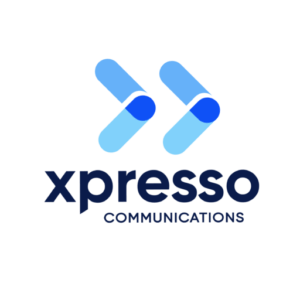Get your head out of the Clouds
Everything is so black and white these days. Binary. And with it, a tendency to push to the extreme outer edges of any given debate. Right or wrong, with nothing in between.
Wouldn’t it be nice if we could all just get along and agree?
Well… no.
Don’t get us wrong; in no way are we advocates of entrenched, dogmatic, ideologically-driven singlemindedness. But we are big believers in Greek philosophy, or – more particularly – the concept of Socratic dialogue: argumentation that isn’t driven by personal investment in the outcome per se, but which exists to challenge ideas in order to find their weaknesses and entrench their strengths. Not dissimilar to the concept of playing Devil’s Advocate, it’s a process of rounding off the edges, discarding the empty assumptions, and forming a conclusion which both ‘thought camps’ can acknowledge to hold strength and legitimacy.
In essence, it’s about rejecting dogma and embracing nuance.
What’s Socrates got to do with the Cloud?
 Why are we banging on about Socrates? Because today we want to talk about the Cloud, and it’s a topic that is sorely in need of rejection of dogmatic polarisation in favour of a bit of nuance.
Why are we banging on about Socrates? Because today we want to talk about the Cloud, and it’s a topic that is sorely in need of rejection of dogmatic polarisation in favour of a bit of nuance.
In truth, Socrates doesn’t have much to tell us specifically about the Cloud – after all, it wouldn’t be invented for another 2400 years. The only reference made to both him and Clouds is found within Aristophanes’ comedy ‘The Cloud’, which lampoons Greek intellectual fashions, and paints good ol’ Socrates in a particularly unfavourable light. But despite this, we do think the application of Socratic method could be of benefit in getting the pro- and anti-Cloud camps to understand each other a little better.
What do those two camps look like currently?
CAMP A: The Cloud is the future. The concept of not just physical storage but physical on-site processing is a dinosaur notion that we need to put behind us. The future is decentralised (no, not you, Crypt-bros), and when we share resources in the Cloud, it means we can invest in those resources more effectively.
CAMP B: The Cloud is a myth. It lacks security, it can’t function as effectively as on-prem solutions, it ends up costing an arm and a leg, it’s volatile, susceptible and engenders complete dependence on a third-party that isn’t really invested in your success.
So wherein lies the truth?
Well, we’d argue that it’s here we need a little bit of Socratic dialogue: because the real answer is – both Voice A and Voice B are wrong.
Well, maybe not wrong, per se. The thing is as a population, we’re increasingly inclined to think people are stupid because they reach different conclusions to us. But the actual ‘logic’ of their process can be the same, it’s just that the inputs, the processing frameworks, and the goals held by other parties are often different from our own, and so different conclusions are reached. In the professional realm, these differences can be based on things such as the context of their operations, the experiences they’ve had in the industry previously, and what they’re hoping to achieve. And so form two diametrically opposed camps: the pros and the antis.
In reality though, it’s by no means paradoxical for both CAMP A and CAMP B to be correct: the Cloud is both one of the most revolutionary things to have happened in technology over the past decade, and will have long-lasting impact for many years to come, and at the same time is a flash-in-the-pan gimmick that will potentially lure and derail many businesses with its false promises.
Because in truth, consideration of the merit of ‘The Cloud’ is both complex and contextual, and it is foolhardy to try and make a simplistic, objective list of its benefits and drawbacks… With that said, let’s give it a go anyway.
The benefits of the Cloud:
It’s accessible from anywhere: If you have an internet connection, you have access to everything you need – both your data and the technology you need to process it. Crucial in an era of remote and distributed operations.
 It gives more: Individually, the infrastructure your company can invest in is limited by budget. But pool those resources with other firms and leave development in the hands of experts, and suddenly the resources available to you are multiplied significantly.
It gives more: Individually, the infrastructure your company can invest in is limited by budget. But pool those resources with other firms and leave development in the hands of experts, and suddenly the resources available to you are multiplied significantly.
All of the benefits, none of the responsibility: Something of a double-edged sword, because it means the risk of downtime and the responsibility of fixing it are in the hands of others, which can often feel uncomfortable. But in general, a service specialising in Cloud provision is going to invest more heavily in both prevention and rectification if and when problems do occur. Which has to be better than stressing your own already-overburdened in-house IT dept.
Flexibility and scalability: If your demand for storage or processing power is variable, or if you are currently small and lacking the funds for infrastructure investment but predict significant operational growth in the near future, then the ability to tap into professional-grade resources and access them as and when needed, paying only for what you use, carries obvious OpEx benefits.
And the drawbacks?
With four such compelling advantages to Cloud-based operations, surely migration of operations to the Cloud is a no-brainer, right?
Well, not necessarily. Consider these elements too:
Security: This one is touted as one of the biggest drawbacks to the Cloud – the movement of data between site and Cloud through the public domain by its very nature opens up more points of vulnerability. But whilst it is an important concern, the risks in this field are often overstated. Much will rest on the measures being taken by the Cloud provider, so those seeking Cloud services need to do their due diligence and ask probing questions about the security measures providers have in place. Importantly though, users also need to remember that they can implement security improvements on their side too (because one of the most significant sources of breach still remains human error – the number of tech-industry professionals who still have 1234 as their password is baffling!).
Performance (and price): In theory, there’s really nothing that the Cloud can’t be used for. Data-heavy tasks such as video transcoding or editing can all be done in the Cloud, and done well. But doing them well (which means both accurately and with next-to-no-latency) takes significant bandwidth and processing power, and this necessarily comes with a higher price tag. So whilst these tasks can be undertaken on the Cloud, organisations with high volumes of work or a need for real-time processing for live outputs may want to consider going ‘old school’ with their own on-site install.
Reliance: As we said in the benefits section, this one is a double-edged sword. Sometimes it’s nice to have someone else in charge, especially when they have the resources and expertise needed, and are therefore best placed to spring into action when issues hit. But it can be daunting to hand over control of your operations to a third-party, and trust is an important component. Alternatively, it can be frustrating to have to adjust your established workflows to those demanded by your Cloud provider. As with security, it’s always a case of ‘do your research’: with so many Cloud providers, it is readily possible to find one congruent with your existing practices (or capable of the flexibility needed to integrate seamlessly with them).
Why this matters to us at Xpresso Communications
 Across the technology sector in general, but particularly in the fields of Broadcast and Telecommunications, many service providers are moving their offerings to the Cloud, or seeking to provide hybridised options that give their customers the choice between on-prem or Cloud-based installs. But with many myths and much misinformation circulating in relation to the Cloud and what it can do, it can be difficult for these firms to communicate their message effectively to potential customers. Why? Because as we said at the beginning, the value of the Cloud is not black and white. Instead, it is highly contextual. And contextual, nuanced messages are always harder to construct.
Across the technology sector in general, but particularly in the fields of Broadcast and Telecommunications, many service providers are moving their offerings to the Cloud, or seeking to provide hybridised options that give their customers the choice between on-prem or Cloud-based installs. But with many myths and much misinformation circulating in relation to the Cloud and what it can do, it can be difficult for these firms to communicate their message effectively to potential customers. Why? Because as we said at the beginning, the value of the Cloud is not black and white. Instead, it is highly contextual. And contextual, nuanced messages are always harder to construct.
Fortunately, at Xpresso we have the knowledge needed – both in terms of underpinning technology and effective messaging strategy – to create content that doesn’t rely on sensationalist, simplistic, dogmatic claims to catch the attention of audiences. Instead, we recognise the intelligence of the reader and the needs of the communicator, and craft messages which meet the interests of both.
So whether it’s complex Cloud messaging, explaining the nuance of competing compression standards, or helping clients to see the creative potential of technologies they had previously taken for granted, at Xpresso – our balanced and measured approach appeals to intelligent, educated and sophisticated audiences far more than over-bearing, rigid and singular assertions regarding the value of a given technology.
So if you respect your customers and want to show that in the way you communicate, why not see how Xpresso can help shape your messaging strategy?






